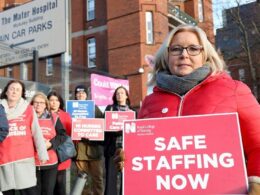On 21 July 1972, 22 bombs planted by the Provisional IRA exploded over a ninety-minute period in Belfast. Nine people died and more than 100 were injured. The day became known as Bloody Friday.
Some are convinced that there was a deliberate attempt to kill civilians on Bloody Friday, but there is no evidence for this. It is the case however that planting so many bombs, in such close proximity in a built up area, was almost certain to cause mass civilian casualties.
The 40th anniversary of Bloody Friday has become another verbal battleground in the on-going controversy over “remembering the past”.
Unionists have called for Sinn Fein to “tell the truth” about Bloody Friday and have demanded a PSNI enquiry. This demand rings hollow given that individuals who went on to play prominent roles in both the DUP and the UUP were associated closely with Loyalist paramilitary groups and paramilitary methods in 1972. Unionist politicians with blood on their hands and a state that had murdered 14 civil rights demonstrators only six months earlier on Bloody Sunday are in no position to ask questions of Sinn Fein.
Sinn Fein does have questions to answer however. The key questions are not who did what on 21 July 1972, or whether Bloody Friday was right or wrong, justifiable or unjustifiable. It is clear that some of those who currently head up Sinn Fein were involved with the planning and execution of Bloody Friday and that it was an unjustifiable atrocity.
The key questions relate to the entire Provisional IRA campaign. In July 1972 the IRA offensive campaign was only 18 months old. From the very outset the Socialist Party opposed this campaign. We argued that the tactics and strategy of the IRA could never defeat a modern capitalist power and would set back its declared aim of a united Ireland by alienating the entire Protestant community.
The IRA did not listen to our relatively isolated voice at the time but it could have, and should have, listened to the Catholic communities where it was based. Whilst there was undoubtedly strong support for the IRA in working class Catholic areas in the early 1970’s this only ever amounted to a minority of the Catholic community. The IRA chose to ignore this fact.
The futility of the slaughter on Bloody Friday made it absolutely clear that the IRA campaign was going nowhere. It was over twenty years before the Adams-McGuiness leadership drew the same conclusion and delivered an IRA ceasefire.
Today Sinn Fein’s version of history is that the IRA’s campaign was justified and that it succeeded. The dissidents’ version of history is that the campaign was justified, that it did not succeed, but that a similar campaign can succeed in the future. All of this is entirely wrong.
The point of genuinely remembering the past is to expose what really happened in a way that points to a better future. This means exposing the responsibilities of the sectarian politicians from both sides, and the responsibility of the state, for the terrible years of the Troubles as a first step to ensuring that we do not return to conflict in the future. This in itself of course is not a guarantee for the future. It is vitally important that we build a political alternative, a mass anti-sectarian party of the working class.












